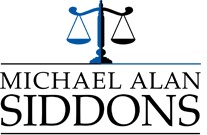Different people have different reasons for filing for Chapter 13 bankruptcy. Maybe you’re behind on your mortgage or credit card bills, but you can still make monthly payments. Alternatively, perhaps you can’t make any payments, but you have a steady job and some assets that could be liquidated to repay your debts.
Regardless of your specific situation, it’s important to understand what qualifications are necessary to file for Chapter 13 bankruptcy. It will ensure that you meet all the requirements and start the process as soon as possible. At Siddons Law Firm, our bankruptcy attorneys can help you understand the qualifications and guide you through every step of the process. We have helped countless individuals and families get a fresh start, and we can do the same for you.
In this blog post, we’ll cover the basics of qualification so you can start thinking about whether or not Chapter 13 is right for you.
What Is Chapter 13 Bankruptcy?
Chapter 13 bankruptcy is also known as a wage earner’s plan. It’s designed for debtors who have a steady income and want to repay their debts over time. This type of bankruptcy law allows you to keep your property and assets as long as you make regular payments to your creditors according to a court-approved repayment plan.
One of the main benefits of Chapter 13 is that you can catch up on past-due payments, such as your mortgage or car loan. It can help you avoid foreclosure or repossession.
Qualifications For Filing Chapter 13 Bankruptcy in Media, PA
You must meet a few qualifications to file for Chapter 13 bankruptcy. Here are the following:
Must Have a Regular Income
Regular income means that you receive money regularly, such as wages, salaries, tips, commissions, self-employment, Social Security, or pensions. Suppose the debtor’s current monthly income is irregular or unpredictable. In that case, you might still qualify for Chapter 13 if you have another source of regular income, such as a spouse with a steady job.
Your income must be sufficient to cover your necessary living expenses and allow you to make monthly payments to your creditors according to the repayment plan.
Can Pay Unsecured Creditors
There are two types of debt in bankruptcy: unsecured debt and secured debt. Secured debt is attached to the property, such as a mortgage or car loan. Meanwhile, unsecured debt is not linked to property, such as credit card debt or medical bills. Your debt repayment plan can include delinquent mortgage payments and car loan payments.
In a Chapter 7 bankruptcy, unsecured creditors are paid from the proceeds of selling your nonexempt property. In a Chapter 13 bankruptcy, you must repay your unsecured creditors as much as they would receive if you filed for Chapter 7.
You Have Paid All Domestic Support Obligations
Domestic support obligations include alimony, child support, and certain other payments that you are required to make by a divorce decree or separation agreement. You must have paid all domestic support obligations that come due during the life of your repayment plan.
Have Filed All Required Tax Returns
If you have not filed a tax return for the most recent tax year, you must do so before filing for Chapter 13. If you have not filed the required tax returns for previous years, the same is true. You must also include copies of any tax returns due within the last four years of filing your bankruptcy petition.
You Have Not Recently Filed for Bankruptcy
If you have filed for Chapter 7 bankruptcy within the last eight years or Chapter 13 bankruptcy within the previous six years, you might not be eligible to file for Chapter 13. The period is measured from the date your earlier bankruptcy case was filed, not the date it was discharged.
Complete Credit Counseling
Before filing for Chapter 13 bankruptcy, you must complete a credit counseling course with an approved provider. The credit counseling must occur within six months before you file for bankruptcy.
You will receive a certificate of completion that you must file with your bankruptcy petition.
Must File a Plan that Repays Your Debts
A key part of your Chapter 13 bankruptcy is the repayment plan. The plan must repay your priority debts in full and unsecured creditors as much as they receive in a Chapter 7 bankruptcy.
Your repayment plan will last three to five years, depending on your income and other factors. The bankruptcy court must approve the plan.
Frequently Asked Questions
What income is used for Chapter 13?
Ina Chapter 13 bankruptcy, your disposable income is used to fund your repayment plan. Disposable income is the amount of your income that remains after paying taxes and necessary living expenses.
What is the debt limit for Chapter 13?
You qualify for Chapter 13 bankruptcy if your unsecured debts are less than $394,725 and secured debts are less than $1,184,200. These dollar amounts are adjusted periodically to keep pace with inflation.
Can Chapter 13 bankruptcy be denied?
Yes. If the bankruptcy court believes that you cannot repay your debts or if you do not follow the rules of the bankruptcy process, your Chapter 13 bankruptcy can be denied.
How much does it cost to file for Chapter 13 bankruptcy in Pennsylvania?
The bankruptcy filing fee for Chapter 13 in Pennsylvania is $313. Some people qualify to have the filing fee waived. You might also have to pay a fee to the credit counseling agency.
Filing for Chapter 13 bankruptcy? Call Us Today!
If you consider Chapter 13 bankruptcy, it is important to understand the qualifications. The process of filing for Chapter 13 bankruptcy can be complex and time-consuming. To make sure you are eligible, speak with an experienced bankruptcy attorney at Siddons Law Firm.
We can help you determine if Chapter 13 is the best option for you and guide you through every step of the process. Contact us today at 610-255-7500 for a free consultation to discuss your unique situation with a bankruptcy lawyer.











